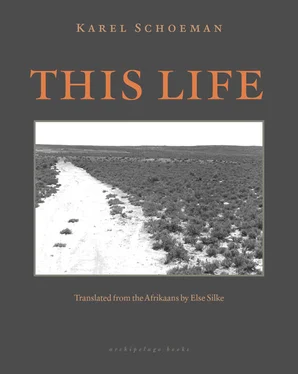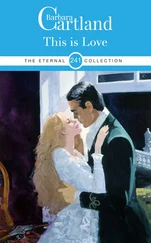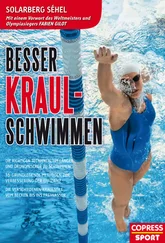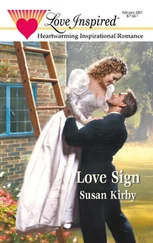Karel Schoeman - This Life
Здесь есть возможность читать онлайн «Karel Schoeman - This Life» весь текст электронной книги совершенно бесплатно (целиком полную версию без сокращений). В некоторых случаях можно слушать аудио, скачать через торрент в формате fb2 и присутствует краткое содержание. Год выпуска: 2015, ISBN: 2015, Издательство: Archipelago, Жанр: Современная проза, на английском языке. Описание произведения, (предисловие) а так же отзывы посетителей доступны на портале библиотеки ЛибКат.
- Название:This Life
- Автор:
- Издательство:Archipelago
- Жанр:
- Год:2015
- ISBN:978-0-914671-16-9
- Рейтинг книги:5 / 5. Голосов: 1
-
Избранное:Добавить в избранное
- Отзывы:
-
Ваша оценка:
- 100
- 1
- 2
- 3
- 4
- 5
This Life: краткое содержание, описание и аннотация
Предлагаем к чтению аннотацию, описание, краткое содержание или предисловие (зависит от того, что написал сам автор книги «This Life»). Если вы не нашли необходимую информацию о книге — напишите в комментариях, мы постараемся отыскать её.
considers both the past and future of the Afrikaner people through four generations of one family. In an elegiac narrator's tone, there is also a sense of compulsion in the narrator's attempts to understand the past and achieve reconciliation in the present. This Life is a powerful story partly of suffering and partly of reflection.
This Life — читать онлайн бесплатно полную книгу (весь текст) целиком
Ниже представлен текст книги, разбитый по страницам. Система сохранения места последней прочитанной страницы, позволяет с удобством читать онлайн бесплатно книгу «This Life», без необходимости каждый раз заново искать на чём Вы остановились. Поставьте закладку, и сможете в любой момент перейти на страницу, на которой закончили чтение.
Интервал:
Закладка:
When spring arrived, we loaded the wagon once more and followed the sheep up the slopes where the flowers were appearing in the crevices, and once again we took possession of the empty house waiting for us just as we had left it behind months before, the doors closed but not locked. The cots and beds were reassembled, the feather mattresses spread out and the beds made; the fire was rekindled in the kitchen hearth; our lives continued. I had not forgotten my resolve, but I could not simply disappear without explanation for an entire day, and so I had to endure patiently, waiting for the rare occasion when Father and Mother would be away all day. At last, that same spring or early summer, it happened — it must have been a funeral, for that was the only reason why Father still left home in those years, and Mother had begun to accompany him so that he would not have to travel on his own; I do not remember anything else, for it was unimportant to me. I only recall the fact of my sudden freedom, and how I hurried to finish my chores, and then I tied a handful of dried pears in a handkerchief and told Maans to come, for today we were going for a long walk. To the end of the world? he asked, for Coenraad had once taken him on his horse to the edge of the plateau where he could look down on the Karoo. Yes, yes, I answered impatiently without listening, and took his hand and set off.
It was far that we had to walk, but not so far that we could not be back before Father and Mother returned, as long as we walked briskly and did not dawdle, and for most of the way Maans ran ahead of me, turning around, laughing, to ask if this was far enough, if we were almost there. Spring or early summer, radiant in the glow of the silvery sunshine, the wind blowing at us from the rim of the mountains, and in the shelter of the rocky ridges, in the hollows and on the sunbaked slopes we came upon fields of flowers illuminating the silver-grey veld with their brightness, spekbos, gousblom and botterblom like in earlier springs, but I took no notice and hurried Maans along when he wanted to linger to pick flowers. The farther we walked, the more anxious and impatient I became, as if it had become imperative that we reach our destination: perhaps, if we could only move fast enough, I argued irrationally as I stumbled over the uneven ground, if we could only get there in time, it might still be possible to find something, though I still did not know what I was looking for. The remains of a fire, perhaps, with the ashes still warm, bedding that had retained the impression of a body or bodies, the fresh tracks of horses? No, not really, I had never deceived myself so completely, but at last there was something within my reach, something tangible after all the secrecy and evasion, the rumours and suspicions on which I had survived for so long, perhaps incomprehensible in itself, but nonetheless comforting as a symbol of the things I could not understand, like the ring on my pillow in the early morning, or the cross between the stones in the wall. Eagerly and hopefully I pressed on, and time and again I over-took the child running ahead of me, and I communicated my excitement and anticipation to him, so that he insisted on knowing how far we still had to go and if we were there yet.
Blindly and instinctively I headed in the direction I knew Bastersfontein had to lie, never doubting that I would be able to find and recognise it. Maans had stopped again to rest, for he was beginning to tire from the long walk, and I reached the crest of a low ridge and saw a hollow ahead of me with reeds and water, a moist, fertile spot in the pale-bright spring landscape, and I knew it was Bastersfontein. I began to run, with Maans behind me, crowing with delight, not understanding what was happening at all; my hair had come undone as we were walking and I had not bothered to tie it up again, and it blew across my face so that I could not see where I was going, and I stumbled and fell to my knees, tears pouring down my cheeks, while Maans danced around me, laughing with joy at our unusual game, excited to find out what would happen next.
But that was all; that was Bastersfontein, we had arrived there. A moist, fertile place nestled in the shelter of a low ridge, a few dilapidated hartbeeshuisies, the collapsed remains of a few old shelters or kraals of stacked branches, the fluttering of white butterflies and the small, shiny leaves of the harpuisbos reflecting the light — what more had I expected? I remained on my knees, and later Maans became bored and ran off while I knelt there still, tears pouring down my cheeks, crying for the first time in years with no one to see my tears, no one to know. Does Maans still know, does he remember?
After a while I wiped my face with my hands and tied up my hair, and I got up. So this was the place where Pieter and Sofie — but no, not even that: this was the place that a confused old woman, muttering in front of the fire in the late evening, had identified in passing as the place where Jakob and Sofie, or perhaps Pieter and Sofie, had hidden, or perhaps not. How could I tell how much of her tale was truth and how much imagination? Perhaps I had misunderstood completely, perhaps I had not even heard her correctly, yet it was all I could cling to. Here Pieter and Sofie had hidden for an indefinite period while people had been searching for them, here Gert had ridden over at night to bring them food stolen from the house, and from here they had finally continued on their journey, destined for somewhere I could not follow. I had to believe that, it must have been like that, for it was the closest I could ever get to them again. Gert and Jacomyn had known, even Dulsie had known, though she had not been let into the secret; our herdsmen and their families must have known of the white people living at Bastersfontein, but nobody had said anything, nobody had given them away, silently united in the plot in which the fugitives were protected from the masters and were helped to escape. Father rode to the Boland in search of them without anyone enlightening him, and I struggled desperately to create from a few incidental words a story in which I myself could believe.
The hartbeeshuisies had stood empty for a long time; the mouldering thatch had disintegrated and the leather thongs securing the posts of the framework had given way, so that the entire structure had collapsed and it was no longer possible to enter. Here they must have slept together at the beginning of their long partnership; at this fountain they must have knelt to wash and drink the clear water from their cupped hands. Did they expect to be followed and tracked down, or did they not even consider the possibility, so that they spent the waiting period laughing together, with no fear that it would pass and that reality would set in? There was no sign left of their presence, the remains of their fire had long been obliterated by the rain and the soil held no footprint or hoofmark any more, but in the moist earth around the fountain there were the fresh hoofmarks of the klipspringertjies who had recently come to drink there. Even the herdsmen had not been there with their flocks since winter.
It was time to return, for we were far from home: as far as a horse could travel in an hour, I remembered dreamily, as far as old Dulsie could walk in an afternoon, and suddenly I recalled Gert’s words. Could it have been more than banter on his part when he sang to himself as he was dressing the thong; could he have been telling me something without my realising it? That was probably the way it happened and I should accept it and stop thinking about it; in any case I was not disappointed, though I had to make up stories on the way back to make our long, unexplained journey seem worthwhile to Maans. I stood on the ridge for a moment, looking back, and I watched as light and shadow washed and surged over the wide landscape before the dark waters closed over everything, rendering all that had disappeared into the dark invisible for ever. I had lost them, across the wide, barren Roggeveld and beyond the undulating horizon, like the wind, like the fog, like the thin, swirling snow, down the narrow, steep cliffs and passes of the mountains — Ouberg, Vloksberg, Verlatekloof, Komsberg — down to the Bokkeveld or the Karoo, from the starkness of the interior to the Moordenaarskaroo, the Koup, the Nuweveld or the Hantam, lost in the desolation of Boesman-land and Namaqualand where no white people remained, to Groot River where the hopeful Basters had sought refuge, and over the distance in the quivering heat it was impossible to recognise them or to follow the rest of their journey, the last certainty obliterated by the heat’s distortions.
Читать дальшеИнтервал:
Закладка:
Похожие книги на «This Life»
Представляем Вашему вниманию похожие книги на «This Life» списком для выбора. Мы отобрали схожую по названию и смыслу литературу в надежде предоставить читателям больше вариантов отыскать новые, интересные, ещё непрочитанные произведения.
Обсуждение, отзывы о книге «This Life» и просто собственные мнения читателей. Оставьте ваши комментарии, напишите, что Вы думаете о произведении, его смысле или главных героях. Укажите что конкретно понравилось, а что нет, и почему Вы так считаете.












